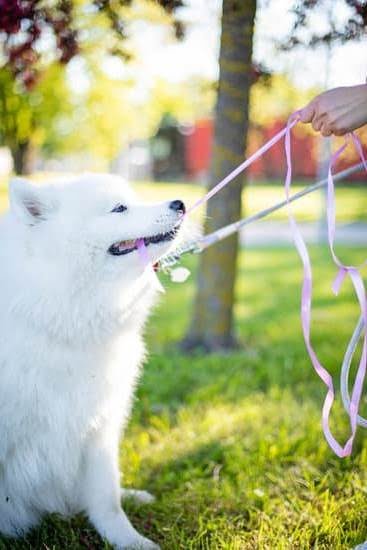Introduction
Training a dog is an important task that, when completed correctly and with patience, strengthens the bond between pet and owner. By instilling positive habits throughout your pup’s life, you create a willing loving companion. Training not only brings up a more disciplined canine but teaches them to respect boundaries, reducing any instances of—or potential for—destructive behavior or other rule-breaking antics.
But at what age should you start? Most trainers recommend beginning as soon as possible. It’s crucial to get puppies accustomed to the home environment during their sensitive period — which is typically between six and eight weeks old. Putting in that foundation of trust early allows for both human and animal to form an unbreakable bond through all stages of the pup’s life. That being said, it is important to always remain consistent, not just during those first two months but throughout their life —consistency builds trust with any animal and will lead to smoother training sessions down the road.
Early basic commands can be taught such as sit or stay; these are particularly useful as they allow owners to teach puppies confidence in themselves so they can learn quicker in later training sessions. With every exercise done right, immediate rewards are often recommended such as verbal praises and treats (in moderate amounts). This not only summarizes each lesson learned with a positive response; it reinforces good behaviors during future sessions — ensuring no bad traits come out in adolescent puppies who demand satisfaction without consequence or direction.
Overall, starting dog training at an early age serves many benefits from building a strong relationship with your pup over time and preventing against disruptive behavior in the future. But don’t forget: consistency is key!
Age Ranges for Dog Training
It is widely accepted within the canine industry that the best time to start training and socializing your pup is between 8-12 weeks. Puppies are in an important stage of development during this period, known as the fear period. During this crucial window puppies will be most likely to accept people and other animals with minimal fear or anxiety if exposed in a positive way. It is essential for them to learn basic commands such as sit, come, stay, heeling etc., as well as going outside when needed for potty training and how to interact with other animals.
Different breeds can have different optimum ages for training. Smaller breeds typically reach mental maturity at a younger age than larger breeds which means they can start learning basic skills and commands at a younger age than large dogs – usually around 6-8 weeks old. Medium-sized breeds such as Shetland Sheepdogs or Standard Poodles fall somewhere in between, usually reaching mental maturity before 12 months of age. Large breeds such as Great Danes or St Bernards might not be considered fully mature until 18 months or even older. Therefore it is advisable to start training earlier on smaller breeds while being considerate and cautious with larger ones.
Overall, every pet parent wants their pup to become a well mannered whole family member so starting early pays off! Set reasonable limits, give rewards when needed and show patience – success will follow!
Benefits of Training Early
Starting dog training at an early age is advantageous for the development of your pup and the building of a long lasting bond. Training can teach basic commands that ensures everyone’s safety, such as “sit”, “stay”, or “come”, helping to limit potential accidents or injuries. Dog training also enables you to socialize puppies in a safe environment which helps them learn acceptable behaviors and how to interact with other canines and humans. Through consistency and repetition, puppies are capable of learning at a much faster rate since they have shorter memories and do not acquire habits like older dogs. Training your dog when they are younger will make them more likely to remember the lesson easier than if they had been taught it at a later age. Additionally, teaching your puppy good manners early on means they will be well-behaved as adults since dogs need routines in order to know what is expected of them. Finally, going through the process of positive reinforcement while training establishes trust and respect between you and your pup that creates an unbreakable bond right from the start.
Setting Goals for Training
The first step in setting goals for dog training is to assess your pet’s individual needs and lifestyle. Consider the age and maturity of your pet, their breed, and the environment they live in. You must also decide which dog training techniques will best fit the characteristics of both you and your pet.
If you have a puppy, it’s important to begin training as soon as possible, usually around 8 weeks of age. Puppy socialization classes are a great way to start this process in order to meet other puppies and learn basic commands such as sit or stay. Remember that consistent praise and reward-based training methods will be most effective with younger dogs.
For adult dogs the age when to begin won’t matter so much given that no behaviors need to be ‘unlearned’. However, if your pup hasn’t been trained at all previously, even an adult can benefit from professional classes or private lessons with a certified positive reinforcement trainer. This can help them improve basic behaviors like walking on a leash without pulling, following instructions, coming when called and being friendly towards guests in the home.
It is important to remember not to get discouraged during the dog training process; it’s meant to be rewarding for both you and your companion! Establishing clear expectations for each session will help keep things focused while making sure neither of you gets overwhelmed during practice sessions.
Working with a Professional Trainer
The age at which you should start dog training depends on the resources you have available, the type of training material you wish to use, and the size of your pet. Generally, puppies aged 8 weeks and older are ready to learn basic skills such as “sit” and “come”. Additionally, they may start to experience socialization with other dogs and humans in an enjoyable manner early on. If using positive reinforcement methods conducted by a professional trainer experienced in these techniques, this can be beneficial to both puppies and adult dogs.
When looking for a professional trainer ensure that they have adequate qualifications, such as memberships in recognized organizations devoted to responsible animal handling. Furthermore, enquire about their unique methods and how challenges are to be addressed. Though expensive initially, hiring a qualified trainer who uses humane methods is well worth the investment for lasting results when it comes to consistency and behaviour modification down the road.
DIY Training Techniques
According to experts, the ideal age to start training your dog is roughly between 8-12 weeks old. This is typically when puppies are most receptive to new information and willing learners. As soon as you get your puppy home, it’s time to start teaching them basic obedience commands, such as “sit” and “down.” Using positive reinforcement like treats, playtime, and verbal praise can help reinforce these behaviors in a fun and effective manner. It’s important to keep the lessons short and sweet so that your pup doesn’t become overwhelmed or frustrated.
When it comes to DIY dog training techniques, some of the most effective exercises include crate training, potty-training, leash walking/training, socialization, problem behavior modification (such as chewing or barking), behavioral imprinting (creating association with words or objects), and working on basic manners (including polite greetings). With proper instruction and guidance from a professional trainer if necessary, these activities can all be taught using strong positive reinforcement methods that benefit both owner and dog on multiple levels. Additionally, many of these techniques don’t require any fancy equipment – all you need is patience, consistency and enthusiasm!
Behavior Modification
The age at which you should start dog training and behavior modification depends on the individual, but it is typically recommended that puppy owners begin basic obedience training as early as 8 to 10 weeks of age. This is a time when puppies are still very malleable and open to learning new things. During this window, use positive reinforcement techniques such as food treats or verbal praise to reward your pup for desired behaviors in order to shape and modify your pup’s behavior. Positive reinforcement helps create strong emotional associations with desirable behaviors while building a trusting relationship between pet parent and puppy.
After basic obedience training has been established, many owners then look at more specific behavioral specialty areas such as potty training, crate training, and establishing good manners. Experts suggest that older puppies (ranging from 4-6 months old) and even adult dogs can still learn how to modify these behaviors – although it may take longer for them to pick up on the cues – so patience is key. The owner should continue to use positive reinforcement techniques; often times setting attainable expectations and breaking down tasks into smaller achievable goals works well with most types of learners!
Conclusion
Ultimately, the best time to begin training your dog is as soon as possible. By starting early, you will make sure that they understand their basic commands and obedience rules. This will also give you an opportunity to familiarize them with different environments and social settings before they become adults. Training should be done consistently and patiently in order to produce the best results. Keeping these factors in mind, it’s clear that starting dog training at an early age is highly beneficial for both you and your furry friend!

Welcome to the blog! I am a professional dog trainer and have been working with dogs for many years. In this blog, I will be discussing various topics related to dog training, including tips, tricks, and advice. I hope you find this information helpful and informative. Thanks for reading!





